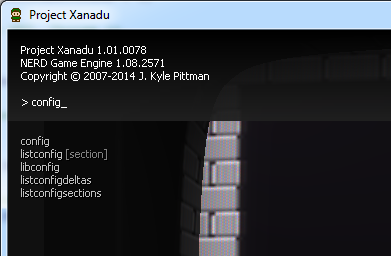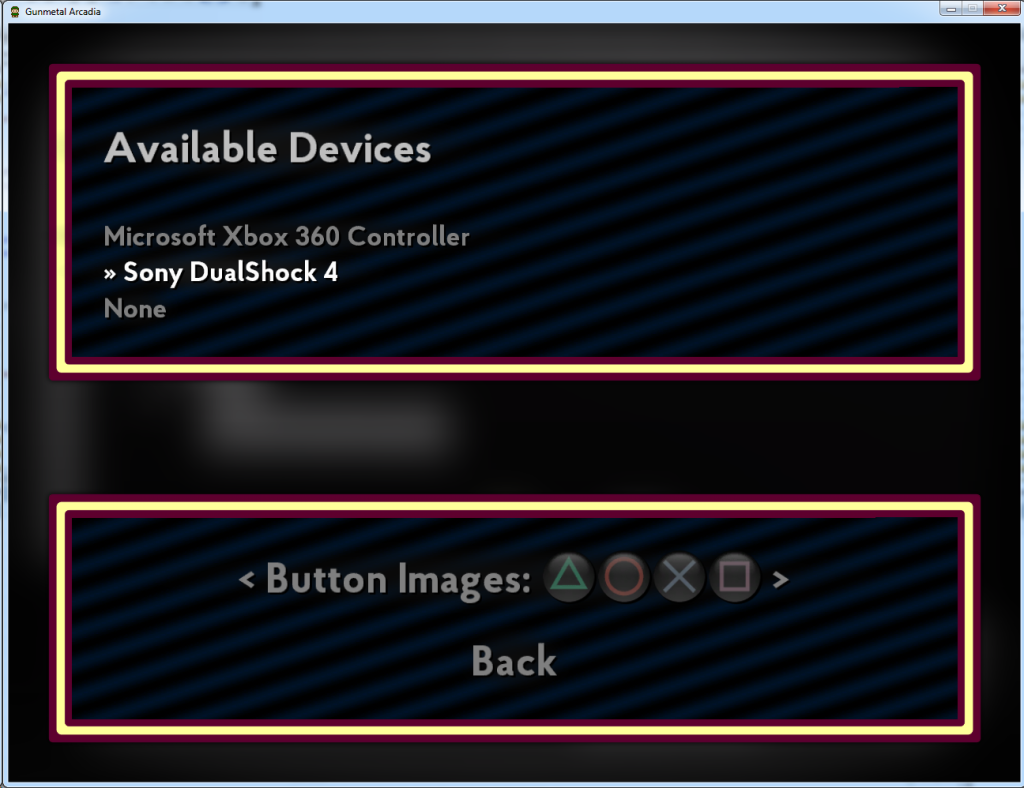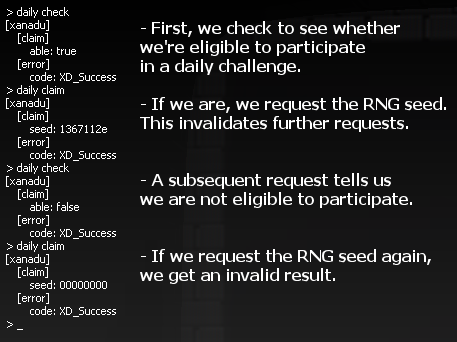This has been a productive week, but also a scattered one. It’s difficult to pinpoint any one thing to blog about, as I spent most of the time jumping from one engine or platform task to another. So I guess I’ll just do another “Grab Bag” entry and write a series of mini-blogs about each of these.
As I was revisiting Super Win the Game for an upcoming update, I took the opportunity to make some much-needed improvements to my Mac and Linux build processes. I use Visual Studio on Windows, Code::Blocks with gcc on Linux, and Xcode with Clang on Mac, and each of these has its own quirks. For instance, Code::Blocks requires that libraries be linked in a specific order, while VS and Xcode can sort these out for themselves. (This is presumably a gcc issue and not a Code::Blocks issue specifically, but as I’m using the two together exclusively, it has only presented itself in this particular environment.) C::B also does not automatically re-link the executable when dependent libraries have changed; these libraries must be explicitly specified as external dependencies. Meanwhile, Xcode defaults to producing intermediate content in a jargon-named external path that is difficult to utilize and searching for libraries in paths that are not relative to the current configuration. For the last year, I’ve been working around these quirks in awkward, cumbersome, and often time-consuming ways, and I finally took the time to understand and address these issues. As a result, making iterative builds on Mac and Linux should be a much less painful process on Gunmetal Arcadia than it was for the Win the Game titles.
I made a small but worthwhile improvement to the autocomplete feature of my game console. It will now display any console command that contains the specified text, as opposed to only commands that start with that text. For instance, in the above example, only the first command would have been found previously. Now it finds four other potential matches. I’ve been relying on the console more and more over the course of the last few games for in-game debugging, and as the set of commands grows, this change will be useful for helping me find what I’m looking for without resorting to searching through code.
I’ve supported Xbox 360 button glyphs in my engine since early 2011, and I added generic numbered glyphs for DirectInput devices for Super Win, but with the recent prevalence of the DualShock 4 as a PC gaming controller, I figured it was high time to add those glyphs as well. Initially, this was only going to be a user setting to allow the player to optionally override the default glyphs at their own discretion, but as I started reading more about USB vendor and product IDs, I realized it would be easy to identify a DualShock controller and default to these glyphs. I also took this opportunity to provide nicer strings for commonly used controllers. By default, the DualShock 4 identifies itself as “Wireless Controller” on a PC. My engine will now recognize the GUID and change this to “Sony DualShock 4” as seen above. I’m a little wary of whether these changes will behave consistently on Mac and Linux due to the way SDL handles device GUIDs, but I can cross that bridge when and if I come to it.
Finally, I did some server backend work to support two separate features that I hope to utilize in Gunmetal Arcadia. The first is a daily challenge mode a la Spelunky. This allows the game to retrieve a random number once per day which may be used to seed a session. This number will be the same for all users on any given day, so players can attempt the same session as their friends.
The second backend feature is one that I began working on last summer, brought to a more or less finished state, and have been sitting on ever since. It’s sort of an asynchronous multiplayer component that will harness social media to enrich the game experience. The pitch goes, as you play Gunmetal Arcadia, you may trigger events which are tagged in some way as social events. This could be anything from unlocking a new level to opening a rare treasure chest to being killed by the final boss. When this happens, you’ll have the opportunity to post a URL to social media. When your friends visit this URL, they’ll receive a code that they can enter in the game to receive a reward or an optional challenge or whatever else may be appropriate.
As an example of how this could have worked in a previous game, recall the Twitter button from Eldritch. This would launch a web browser and author a tweet telling how the player died. Now imagine that same thing, but it goes on to say, “When I died, I dropped 50 gold pieces. Use code ‘ABC-123-FOO’ to retrieve them!” Now someone else could launch their copy of the game, enter the code ‘ABC-123-FOO,’ and start a session with 50 extra gold pieces.
I’ve left some of the specifics of this system deliberately vague because I want to leave it open to whatever possibilities I may dream up. These will always follow the paradigm of one player’s in-game event creating a code that another player can use to affect their game, but beyond that, it could be just about anything, depending on how ambitious I want to get and how well early playtesters respond to the concept.



